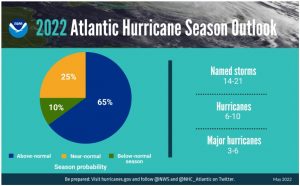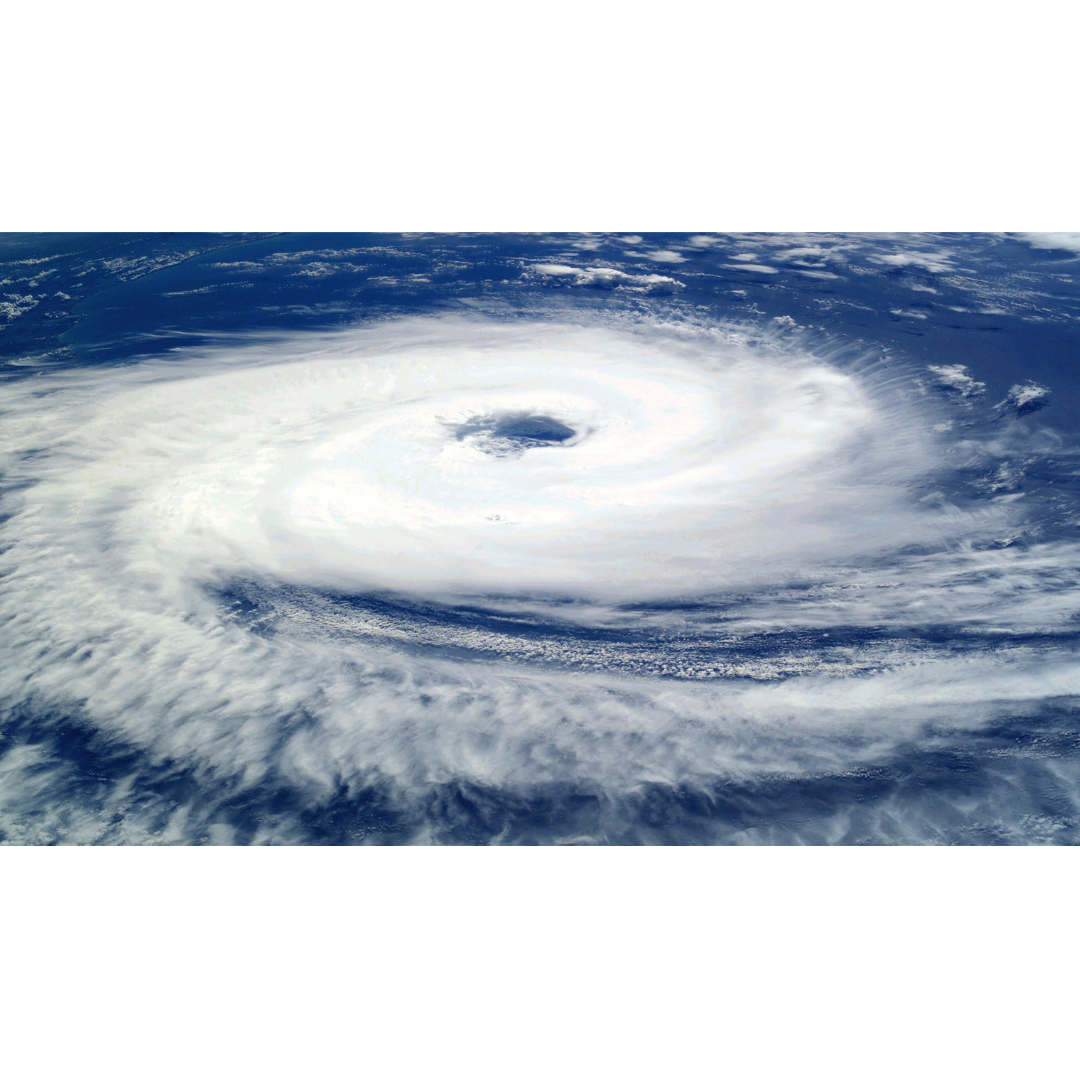2022 HURRICANE NAMES Hurricane Season has officially arrived. Forecasters at NOAA’s Climate Prediction Center, a division of the National Weather Service, are predicting above-average hurricane activity this year — which would make it the seventh consecutive above-average hurricane season. NOAA’s outlook for the 2022 Atlantic hurricane season, which extends from June 1 to November 30, predicts a 65% chance of an above-normal season, a 25% chance of a near-normal season and a 10% chance of a below-normal season.
For the 2022 hurricane season, NOAA is forecasting a likely range of 14 to 21 named storms (winds of 39 mph or higher), of which 6 to 10 could become hurricanes (winds of 74 mph or higher), including 3 to 6 major hurricanes (category 3, 4 or 5; with winds of 111 mph or higher). NOAA provides these ranges with a 70% confidence.
“Early preparation and understanding your risk is key to being hurricane resilient and climate-ready,” said Secretary of Commerce Gina M. Raimondo. “Throughout the hurricane season, NOAA experts will work around-the-clock to provide early and accurate forecasts and warnings that communities in the path of storms can depend on to stay informed.”
“Truck drivers will need to be trained, retrained, and prepared for the season; experts agreed. Training for severe weather is a must for fleets because, while it helps increase safety, it also affects profitability.” said Max Farrell, CEO of WORKHOUND, a driver-feedback company.
“You have to stay safe in this business, to make a fair amount of money,” said Farrell.
“The COVID-19 Pandemic has prompted new kinds of training, but weather and climate have not been factored in as much when fleets assess training needs. Accidents also usually cause more training, though fleets do not always tie such new training to the weather and storm problems that may have contributed to the accidents”, Farrell said.
But more and more fleets will focus on weather-related training, Farrell predicted, because it ties into safety scores and lower insurance premiums. “It would be too costly not to,” he said.

Jeremiah Hanna, the Transportation Manager of Greene Transport Company gave a few tips for truck drivers during Hurricane Season:
- Stock up on non-perishable food items and water in your truck.
- Take Pre and Post trip equipment inspections very seriously. This will help identify any potential issues that could arise while you are out on the road. If you get stuck somewhere during a hurricane, you may not get help as quickly as your normally would.
- Making more frequent stops for fuel to keep your tank 75% full or more is essential during hurricane season.
- Always monitor weather reports along your route and keep in touch with your head office on hurricane movement if necessary.
- Ensure safety equipment and PPE is fully serviceable and readily available.
- Keep extra batteries and portable chargers for all your electronic devices.
Always use your best judgment when driving through impacted areas and keep in mind that your vehicle will be susceptible to roadway risks long after the storm passes. Scattered debris may contribute to traffic delays, road closures and can even damage your equipment. Remember, a truck drivers’ number one priority during a hurricane should always be his or her own safety.





